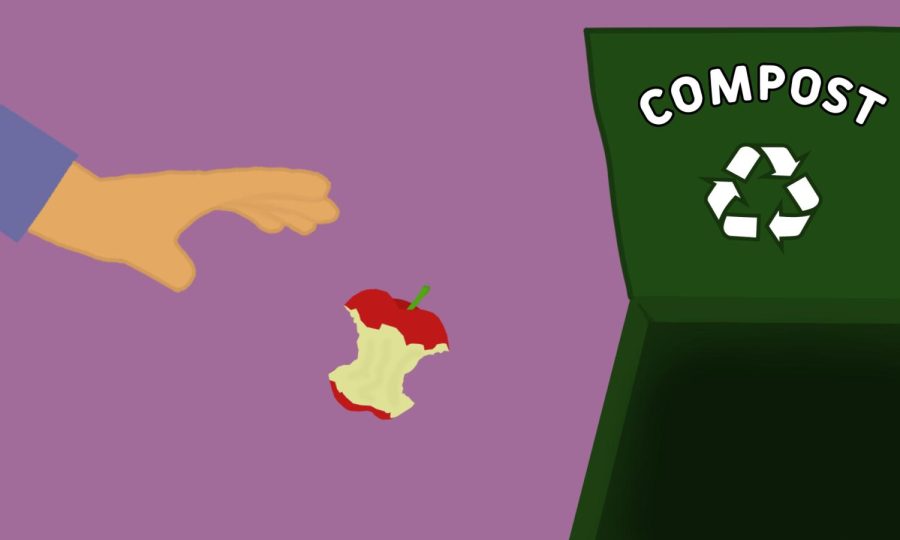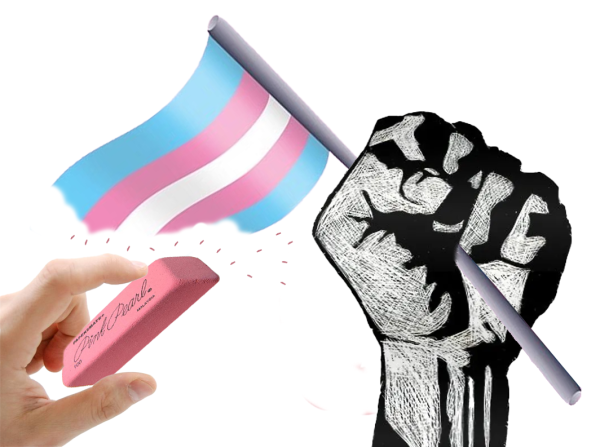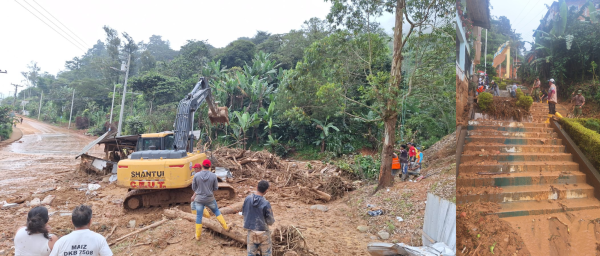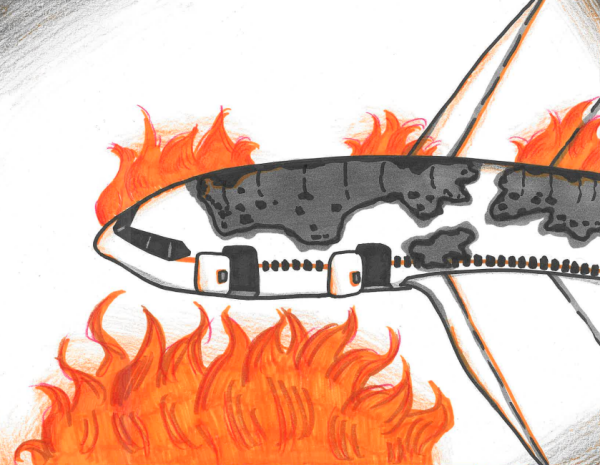New waste management system introduced at CHHS
Illustration by Adriana Inamagua
Organics such as food waste, cardboard and more can now be composted at Columbia Heights Public Schools.
After many years of throwing garbage, food and full milk cartons in one single place, Columbia Heights High School (CHHS) has now implemented composting and other forms of appropriate waste management.
What is composting you may ask? Composting is a form of waste management that converts organic matter into nutrient-rich soil. It is a process that uses carbon and nitrogen to grow, causes water to digest waste and produces oxygen to facilitate the process. One fully integrated process that is in place is the Columbia Heights Public Schools (CHPS) recycling program. The main focus is to manage the proper disposal of recyclable products, such as bottles, paper, cardboard, etc. into an individual recycling dumpster. The trash is then dumped into a separate dumpster to avoid any clogging of machines in the recycling plants.
Along with a well-organized recycling program throughout Heights, CHPS is also taking steps to become a cleaner environment and has resulted in composting inside the CHHS cafeteria kitchen. An individual compost dumpster is now in the works for CHHS cooks to use as soon as next school year! The steps will first start in the cafeteria’s back kitchen and if that turns out to be a success with no issues, then it will make its move to the main cafeteria.
“This year we’re starting just in the kitchen itself, that the cooks will start [using] to compost everyday,” CHHS custodian Mr. James Phillippi said. “So we are active in it, we’re trying!”
Composting has been proven to be beneficial in many ways. The rich soil derived from composting can be used as a safe, efficient fertilizer and reduce the placement of garbage and waste into landfills. Without this natural process, entire ecosystems could be affected and the environment’s climatic stability would suffer. Not only is composting a natural and great way to clean our planet, but it requires minimal effort, resources and money. It is also one of the most efficient ways to acknowledge climate change and build healthy soil. Compost can also be used as a rich soil amendment or mulch that improves plant growth in your garden.
Despite the great progress, other schools in the district have already anticipated the practice of clean forms of waste management like composting. North Park School for Innovation (NPSfI), one of three elementary schools in the Columbia Heights District has taken progressive steps toward eco-friendly waste disposal. Using an innovative biodigester, food scraps are turned into energy and food/soil for their plants. The process for soil takes about 24 hours. NPSfI is the first school to have a biodigester in the country. In addition to the biodigester, NPSfI has expanded its sustainability innovations by adding solar panels, rain gardens and a great edible school garden. NPSfI teachers also implemented the importance of taking care of the environment into their curriculums to educate students.
Not only is it important to educate students about the benefits of composting and the importance of taking care of our planet, but it is also important to acknowledge the negative effects of poor waste management. Aside from filling up landfills and contaminating the world’s oceans, it can result in the spread of disease and air contamination. More specifically, the more emissions that are produced from all the trash generated, can expose humans to develop diseases such as asthma, cancer and heart disease. All these hazardous factors lead to the death of millions and millions of human lives each year–globally.
“As an American, I am conscious that we tend to produce more and consume more than the rest of the world,” CHHS alumnus and current St. Olaf Environmental Studies major Gissel Inamagua said. “So any effort that we can make in reducing our carbon footprint and helping to decrease the amount of waste that we are sending to landfills, is always going to be a good thing not only for ourselves and our communities but for our environment as well.”
As time goes by and with the help of the entire community, CHHS hopes to start by fully expanding their compost methods to the cafeteria, by introducing a sorting table with options to compost, recycle, and dump any trash. If and when funding is made available in the near future, proper waste management can be established throughout the building and made available for all staff members and students.
Composting, now introduced to CHHS, is a resourceful way to help our world get greener and cleaner!
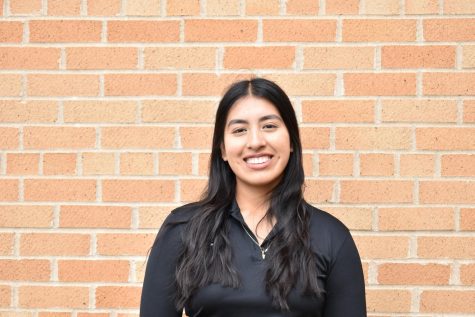
Adriana Inamagua is the Co-Lead Illustrator for The Heights Herald. She is a junior and is involved in various sports including soccer and lacrosse. She...


